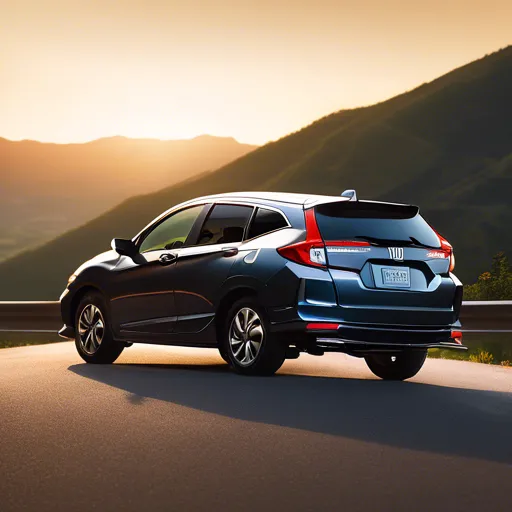
History of Honda
The history of Honda is inextricably linked to the name of its co-founder, Soichiro Honda. His passion for automobiles and his determination to be a leading force in the automotive industry made Honda one of the most recognized and respected names in the industry.
The Beginnings
Honda was founded in Japan in 1946, but Soichiro’s visionary energy had its beginnings long before that. Honda began his career as a mechanic and set himself the ambitious goal of designing the ultimate car. Initially, the newly formed company focused on manufacturing engines for bicycles and only later on building cars.
Expansion and Innovation
In 1959, Honda applied its innovative spirit to the motorcycle industry and became the world’s largest motorcycle manufacturer that year. It wasn’t until the 1960s that Honda entered the automotive sector, conquering markets worldwide in the decades that followed. In the 1980s, Honda introduced its legendary NSX, a supercar that set the technical standard and definitively established Honda as a world-class automaker.
Honda and Motorsport
Honda has also repeatedly set new standards in motorsport. Whether in Formula 1 or motorcycle racing, Honda has often demonstrated its technological advancements on the racetrack. Honda became involved in various racing classes early on and achieved impressive success.
Current Position
Today, Honda is a global player and one of the largest automobile manufacturers in the world. With its wide range of vehicles, ranging from economical city cars to high-performance sports cars, Honda stands for quality, innovation, and reliability. A pioneer in environmentally friendly technologies, Honda has also made significant advances in the development of hybrid and electric vehicles. Honda’s history is characterized by high ambitions, unwavering determination, and the constant pursuit of improvement and progress. It is this unique combination that has made Honda the recognized brand it is today.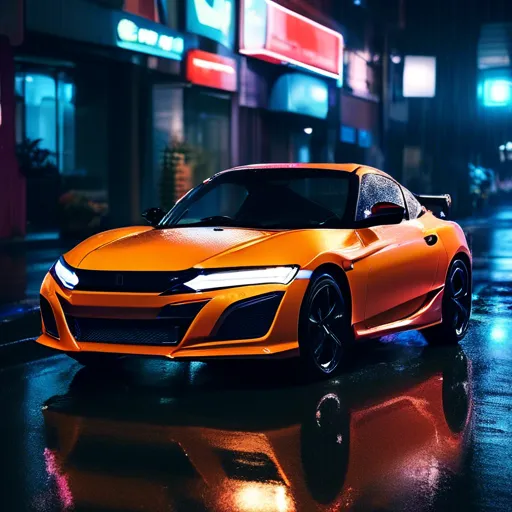
Honda today
Honda is a global company headquartered in Japan, whose activities extend far beyond the automotive industry. In the automotive sector, Honda is an established player on the global market and boasts an impressive model range. Honda stands for reliability, innovation, and excellent value for money, thus appealing to a broad spectrum of customers. Taking into account its key sales markets, Honda has a strong market position in some areas. Honda is particularly present in North America and large parts of Asia, holding significant market shares. In general, Honda is characterized by high acceptance in markets with high quality standards.
Honda product portfolio
The current range of Honda vehicles covers almost all vehicle classes, from compact city cars and spacious family vehicles to high-performance sports cars. Honda also has attractive models in the SUV segment and among hybrid vehicles.
Market position and challenges
Despite its strong presence, competition is tough for Honda. The company has to compete against a wide range of competitors and tries to do so through continuous development and improvement of its vehicles. Honda is known for responding to customer feedback and incorporating it into the design and features of its cars.
Economic Performance
Over the years, Honda has proven that the company can perform well in both good and difficult times. Looking at its sales and profits, Honda has stable financial health, which is due not only to the quality of its vehicles but also to an efficient business model. In conclusion, Honda is now a major player in the automotive industry. With a strong market presence and a reputation for producing reliable and innovative vehicles, Honda continues to be an attractive option for car dealers and customers worldwide.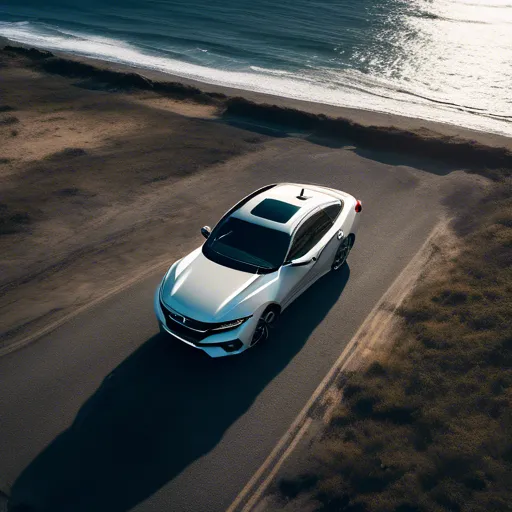
Honda Vehicle Classes
Honda is a brand known for its wide range of vehicle classes. With its diverse offering, Honda can meet various customer requirements and thus represents an attractive model spectrum for the used car trade.
Car Classes
Honda offers a wide range of cars, from small cars to mid-size cars to luxury cars. Well-known models such as the Honda Civic, a compact car available in several generations, or the Honda Accord, an upscale mid-size car, are particularly popular on the used car market. In addition, Honda also offers sporty models such as the Honda S2000 or the legendary Honda NSX, which are highly valued by enthusiasts.
SUV and Crossover Classes
In this segment, Honda offers models such as the Honda CR-V, a comfortable SUV, or the Honda HR-V, a compact crossover. These vehicles impress with their reliability and durability, making them an attractive option for the used car trade.
Motorcycles and Scooters
In addition to cars, Honda is also known worldwide for its motorcycles and scooters. From small city scooters like the Honda SH to large sports bikes like the Honda Fireblade, Honda offers an impressive range of two-wheelers. Although they don’t directly fall into the used car trade, they can still influence the overall market and brand appeal.
Future Direction
Honda’s future in terms of vehicle classes looks very promising. Honda has announced that it will offer all models in Europe with electrified powertrains by 2022. These new electrified models are expected to continue to cover the range of vehicle classes offered by Honda. This means that in the future, Honda will not only offer a wide selection of vehicle classes, but also a variety of electrified options within these classes. This future direction ensures that Honda will remain an interesting partner for the used car trade in the coming years. With its reliable and diverse models, Honda can continue to play an important role in the used car market.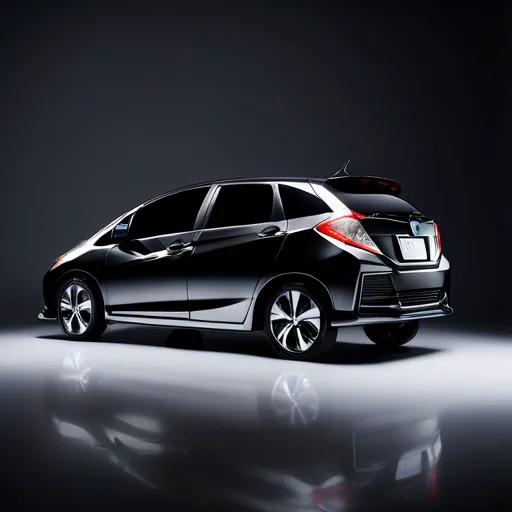
Innovation and Technology at Honda
As one of the leading automobile manufacturers, Honda stands not only for reliability and durability, but also for innovation and technological progress. Honda demonstrates its pioneering spirit, particularly in the development and implementation of future-oriented technologies, and sets new standards in the automotive industry.
E-Mobility and Hydrogen Fuel Cell Technology
A central component of Honda’s innovation strategy is electromobility. With the introduction of the Honda e, the first fully electric model, the manufacturer has taken an important step toward more sustainable mobility. This vehicle is a pioneer in electric drive, combining sustainable technology with innovative design. Another groundbreaking technology that Honda is advancing is hydrogen fuel cell technology, which is used in the Honda Clarity. This model produces its own electrical power on board, making it an important component in the regenerative mobility chain.
Autonomous Driving and Artificial Intelligence
Honda is also setting standards in the field of autonomous driving. Various models already feature semi-autonomous driving systems that automatically perform tasks such as keeping in lane or parking. Honda is also working intensively on the development of fully autonomous vehicles. Artificial intelligence plays a crucial role in this: it is intended to ensure greater safety, comfort, and efficiency in vehicles in the future.
Connected Vehicles and the Internet of Things (IoT)
Thanks to the Internet of Things, Honda vehicles are also increasingly becoming part of a connected ecosystem. Thanks to state-of-the-art communication technologies, vehicles are able to interact with each other and with their surroundings. This so-called “vehicle-to-everything” communication enables, for example, the exchange of traffic information in real time and thus optimize driving behavior.
Integration of Health Sensors and Augmented Reality
Honda is also working on integrating health sensors and monitors into its vehicles. These will monitor the driver’s health in the future and sound an alarm if necessary. Another innovation focus is in the area of augmented and virtual reality technologies. They have the potential to revolutionize the driving experience by projecting navigation information directly into the driver’s field of vision, for example. With these and other technologies, Honda underscores its commitment to developing innovative solutions for the challenges of tomorrow’s mobility, always keeping people at the center. It will be exciting to see what other innovations Honda will present to us in the coming years.
Honda and Sustainability
Honda has made a name for itself in the automotive industry not only as a manufacturer of high-quality and reliable vehicles, but also as a leader in sustainability and environmental friendliness.
Environmental Protection and Sustainability as a Corporate Principle
Honda has clearly defined its strategic goals: By 2050, the company aims to convert its entire product portfolio to CO2-neutral models. This ambitious plan encompasses the production, operation, and disposal of vehicles. Honda is aware of its responsibility towards the environment and therefore relies on a vision of sustainability that is anchored in all areas of the company.
Electrification of the Vehicle Range
As part of its sustainability efforts, Honda has announced its intention to electrify all European models by 2022. This corresponds to a broad spectrum of vehicle classes, from small cars to SUVs. Honda is focusing not only on pure electric cars but also on models with hybrid drive systems. This strategy aims to significantly reduce CO2 emissions and promote sustainable mobility.
Environmentally Friendly Production
But Honda isn’t just committed to sustainability when it comes to vehicle propulsion: The company has implemented strict guidelines for its production processes to minimize its ecological footprint. These include the use of environmentally friendly materials, efficient manufacturing methods, and the reduction of waste.
Commitment to Renewable Energy
Honda is also pursuing a sustainable course in its energy policy. The company is increasingly relying on renewable energy. In 2020, Honda announced that it was the first automotive company in the world to supply its European production facilities with 100% renewable energy. In summary, Honda attaches great importance to sustainability and environmental protection. Through continuous innovation and constant commitment, Honda is consistently working to realize its vision of climate-neutral mobility.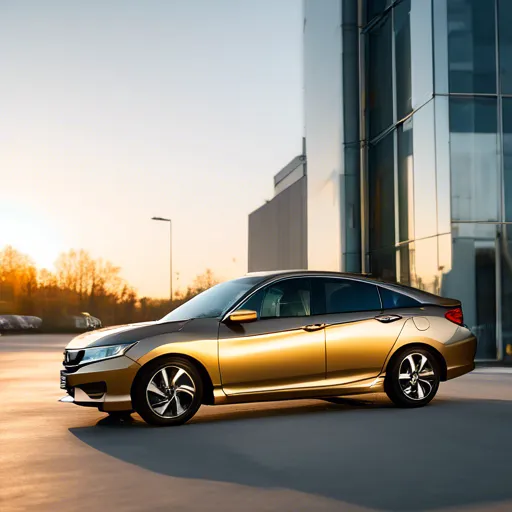
Used Car Market Analysis for Honda
The used car market offers a wide range of vehicles from different manufacturers, including Honda, one of the world’s leading automotive brands. As a renowned player in the used car market, Honda offers a wide range of attractive options.
Honda’s Position in the Used Car Market
Honda used vehicles are a major player in the market. The reasons for this are their reputation for quality, reliability, and durability. Ultimately, buying a used car is always a matter of trust in the brand—and Honda has a lot to offer in this area. Honda’s popularity extends beyond specific models. Although the Civic and Accord models are often the first choice for used car buyers, other models such as the CR-V and Jazz also have a firm place in the used car market.
Price Trends for Used Honda Cars
As with any used car, the price of a used Honda vehicle varies depending on the model, age, mileage, condition, and location. In general, however, it can be said that Honda vehicles retain their value well in the used car market. They offer a solid blend of value retention, quality, and reliability.
Honda’s Competitive Advantage
A key factor that sets Honda apart from other brands in the used car market is the quality and durability of its vehicles. Honda regularly wins awards for reliability and customer satisfaction. In addition, Honda offers a wide range of models and options to meet the diverse needs and preferences of used car buyers. From compact cars to SUVs and hybrids, used Honda vehicles offer something for almost everyone. In summary, Honda has a strong presence in the used car market. With a wide range of high-quality and reliable models, used Honda vehicles are a top choice for used car buyers. Nothing stands in the way of the stable market position of Honda used vehicles.
Purchasing Used Honda Vehicles
When it comes to expanding the vehicle selection at your dealership, both purchasing and additional purchases play an important role. Models from the renowned manufacturer Honda are particularly attractive due to their longevity, sophisticated technology, and high resale value. Purchasing used Honda vehicles offers many advantages. In this process, you acquire vehicles directly from the previous owner or another car dealer. Compared to purchasing, you have greater influence on the price and vehicle model, as you can proactively manage the process and negotiate the purchase price yourself.
Quality Control and Vehicle Optimization
Furthermore, purchasing allows for strict quality control. You have the opportunity to thoroughly inspect the vehicle and carry out any necessary repairs or refurbishments before selling. This increases the vehicle’s attractiveness on the market and can lead to a higher resale price.
Flexibility and Diversity in the Vehicle Fleet
With the help of purchasing, you can actively influence the composition of your vehicle fleet. You decide which Honda models you purchase, allowing you to respond specifically to current trends and customer demand.
Conclusion
When dealing with renowned car brands like Honda, purchasing is an excellent strategy for expanding your offerings and attracting new customers. By combining purchasing with the right tools and a careful eye for vehicle quality, you can strengthen your business and future-proof it.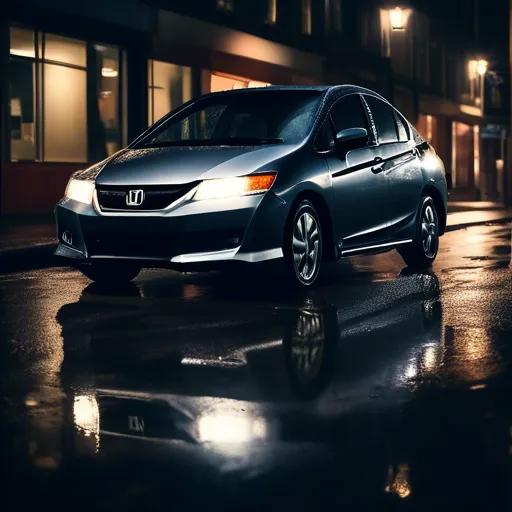
Purchasing Used Honda Vehicles
Purchasing used Honda vehicles is a strategic measure that allows dealerships to expand their used car offerings and respond to current market trends. Unlike vehicle purchasing, where consumers sell their used cars to dealers, purchasing specifically responds to the demands and preferences of the market and customers.
Strategic Importance of Purchasing
Purchasing allows dealerships to respond to specific customer needs or market trends. When purchasing used Honda vehicles, dealers ensure they acquire models that are currently in high demand or fill gaps in their current inventory. Purchasing also opens the door to vehicle types that might not be available if the customer sold directly.
Create a Balanced Mix
Purchasing plays a significant role in offering a balanced and diverse range in the used car market. By selectively purchasing used Honda vehicles that are underrepresented in your current inventory, you achieve greater diversification. This, in turn, can help you tap into new customer groups and further advance your business.
Response to Market Trends
By purchasing used Honda vehicles, you also have the opportunity to respond flexibly to market trends. Whether demand is for hybrid models or smaller city cars – with targeted purchasing, you can quickly adapt your product range to current trends.
Advantage over Purchase
While purchasing used vehicles is an essential part of replenishing your inventory, purchasing goes a step further. It offers strategic depth that specifically addresses the needs of the market and customers. The focus here is not only on expanding the inventory, but also on having the right vehicle at the right time. When it comes to asserting yourself against the competition and strengthening your own offering in the used car sector, purchasing used Honda vehicles is an important lever. It is the finely tuned interplay between purchase and acquisition that is decisive.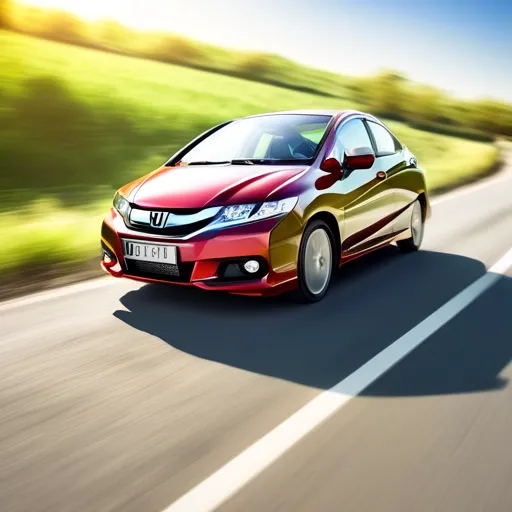
Idle Time at Car Dealers for Used Honda Vehicles
The idle time of used Honda vehicles at car dealerships is an essential factor in the used car business. It influences both dealer profitability and customer satisfaction. Efficient management of idle time can increase sales, avoid overhauls, and improve customer satisfaction.
Factors Influencing Idle Time
Various factors can influence the idle time of used Honda vehicles. These include aspects such as the vehicle type, model, age, or mileage. However, circumstances such as the general condition of the vehicle or the current market situation also play a role. The faster a car can be made ready for sale after purchase, the shorter the idle time and thus the greater the potential profit.
Efficient Management of Idle Time
Efficient management of idle time is therefore crucial for the profitability of the business. A detailed market analysis of used Honda vehicles can help with this. It can provide valuable information about demand and potential selling prices, thus supporting decisions about which models to purchase and in what quantities. Tools specifically tailored to the used car market can also be helpful. These primarily involve software solutions with integrated analysis tools. They make it possible to precisely track a car’s downtime, identify the causes of potentially longer downtimes, and derive suitable measures for improvement.
Sustainability as a Possible Factor for Reducing Downtime
Various innovations and technical advances can also contribute to minimizing the downtime of used Honda vehicles. One example is the increasing importance of sustainability. Honda is known for its environmentally conscious models and the use of sustainable technologies. Many customers choose used Honda vehicles precisely for this reason. A sufficient range of sustainable and environmentally conscious vehicles can therefore further reduce downtime. Ultimately, professional downtime management can significantly influence the success of the used car business. For Honda vehicles, it is important to consider the special features and advantages of this brand in order to effectively minimize downtime and maximize sales.
FAQ
What are the benefits of purchasing a used Honda?
Purchasing a used Honda offers several advantages, including affordability, reliability, and longevity. Hondas are known for their durability, often running smoothly for many years with proper maintenance. This means you can get excellent value for your money while enjoying features that come standard in many modern vehicles.
How can I ensure the quality of a used Honda before buying?
To ensure you’re getting a quality used Honda, it’s essential to conduct thorough research. Look for reports on the specific model’s performance and check its service history. Getting a mechanic to inspect it before purchase can also reveal any hidden issues that may not be immediately apparent.
What should I consider when setting a budget for my used Honda purchase?
Your budget should encompass more than just the purchase price; consider insurance costs, registration fees, expected maintenance expenses, and fuel efficiency. By factoring in these additional costs, you’ll have a clearer picture of what you can genuinely afford without stretching your finances.
If I find multiple options online, how do I choose the right one?
Navigating multiple listings requires evaluating each option based on factors like mileage, condition history reports, previous ownership details, and overall pricing within your market area. Consider reaching out to sellers directly to ask about any special features or concerns regarding their vehicle prior to making your final decision.
Now reading:
- How to choose wallpaper for a compact bedroom: more than 50 relevant photos in the interior
- 10 Ready-Made Color Combinations to Create a Cozy Living Room
- How to clean your washing machine: steps to remove dirt, scale and odor.
- How to choose the best window sill for an apartment: types, colors and design (35 photos)
- Choosing a gate for a country house: types, sizes and design solutions (40 photos)